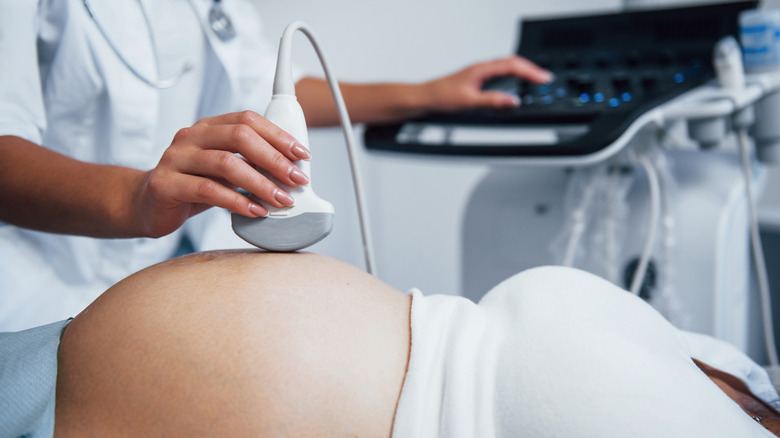How Scientists Are Now Detecting Autism In Babies Before Birth
Autism Spectrum Disorder (ASD) is a cognitive condition that may cause a person to fixate on certain interests, engage in repetitive behaviors, and experience challenges with communication and socialization (via WebMD). According to the American Psychiatric Association (APA), early signs of autism may be apparent in some cases before a child is 12 months old, while in other cases, autism might not be apparent until a child enters school.
While symptoms of autism may be identified at a variety of stages, studies show that early detection and intervention are key to maximizing a child's quality of life. The National Institute of Child Health and Human Development (NICHD) explains that when a child is diagnosed with autism and receives intervention services by the time they are in preschool, it can have a significantly positive impact on their future development. This is due in part thanks to the brain's malleability during this stage of life (via NICHD). The future of early intervention has been given a boost thanks to new research highlighting how fetal brain scans may be able to predict autism.
Using MRIs to detect autism
A study from the Harvard Medical School suggests that brain scans taken of babies while in utero may help to predict future cases of autism. The study examined MRIs of 39 fetuses whose mothers were each about 25 weeks along in their pregnancies. Of those 39 babies, 9 of them were later diagnosed with autism (via Healthline). The study reported that these children all had significantly larger insular cortexes than the children who did not have autism. The insular cortex is a part of the cerebral cortex of the brain and is responsible for many different processes, including self-awareness, empathy, and how you perceive your environment and make decisions (via ScienceDirect).
Thanks to this potential new avenue in the early detection of autism, the research may serve as an important step toward improving the application of early intervention services. "If replicated, this finding could lead to a better understanding of the mechanisms involved and spark new ideas for intervention approaches," Carissa Cascio, Ph.D., associate professor of psychiatry and behavioral sciences at Vanderbilt University Medical Center, told Healthline.


